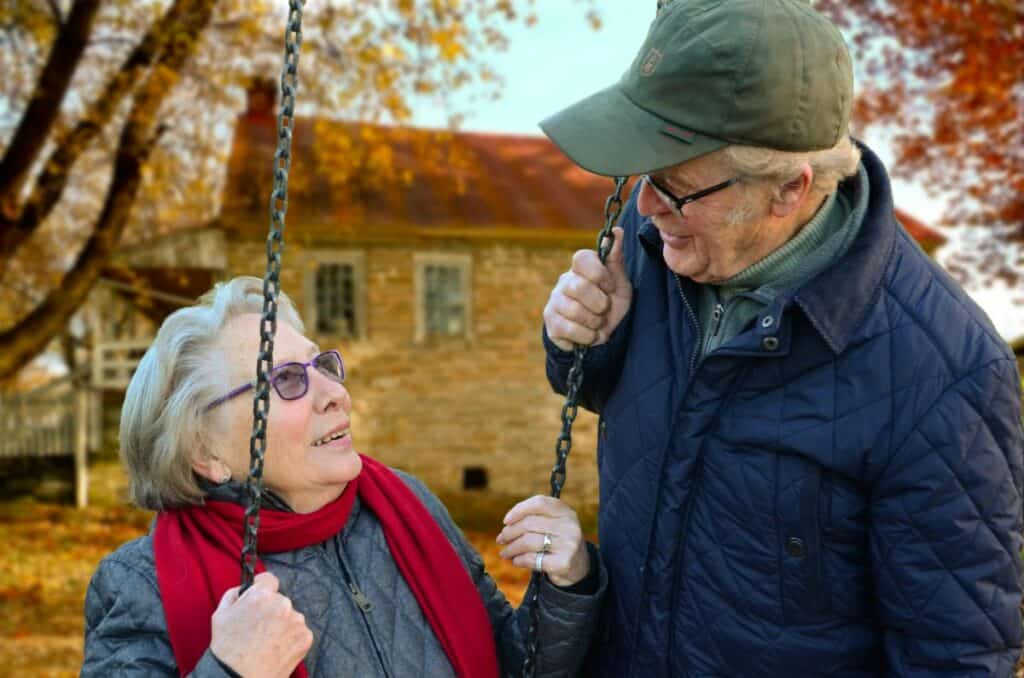Breaking Free from the ‘Fourth Age’ Mindset

Author: Sian Brookes
Friend to Faith in Later Life, Sian Brookes, is currently studying for a Doctorate in Theology at Aberdeen University. She is particularly interested in the role of older people in society and how the Christian faith and contemporary church can speak into this. She has also worked with older people in care homes and in the charity sector in Health and Social Care programme design. In her second blog for Faith in Later Life, Sian, helps us to consider why dropping the label ‘fourth age’ may help us all to embrace and engage with the realities of all stages of old age in a more positive way.
What is the “Fourth Age”? This stage of life is often described as the point following the Third Age. If the Third Age includes the earlier years of old age (perhaps 60s and 70s), then the Fourth Age reaches into the later late years (80s and 90s). More crucially however, whilst the Third Age is understood as a time of independence, activity, health and engagement in society, the Fourth Age is one where frailty and dependence increases, withdrawal happens and passivity is inevitable due to disability and decline. All well and good, one might think. But when we consider this term in more detail, it begins to reveal some unsettling truths about what we really think about old age.
The “Fourth Age” concept is one which has been discussed extensively by two gerontologists called Gilleard and Higgs. They suggest that the Fourth Age actually bears little resemblance to the lived experience of older people, but is more akin to the concept of a ‘Social Imaginary’, a phrase borrowed from philosopher Charles Taylor. A ‘Social Imaginary’ describes a society’s expectation of what should be the norm or an accepted truth to which all people should adhere. For our current purposes, in modern European societies, we have come to expect that at some point in life (barring premature death), as we move into old age, we will all have a time of fruitfulness and peace, a rest following a busy middle age filled with responsibilities of children and work. Post-retirement life will be full of activity and enjoyment. But then as frailty increases and death approaches, we all at some point will tip over into an “abyss”, and one which none of us want to enter – the Fourth Age. The Third Age becomes the hope of old age, whilst the Fourth Age becomes the dark reality which none of us want to live through. As Gilleard and Higgs write, “The brighter the lights of the third age, the darker the shadows they cast over this underbelly of aging — the fourth age.” Independence and dependence, success and failure, activity and passivity, health and frailty, ability and disability are contrasted and held at arm’s length from one another.
There are two problems with this concept of the “Fourth Age”. Firstly, it is rarely the experienced reality of individuals in old age. Instead of there being a distinct turning point where we transfer from Third to Fourth Age (on one’s 80th birthday, for example), the reality is more fluid and unfathomable. Loss of capacity happens gradually, and in different ways at different times. If we simply classify someone as being in the “Fourth Age” and therefore expect them to behave or be unable to behave in certain ways, we miss a huge amount of what it means to be a person with a variety of experiences of living each day. But more worryingly, this concept of the “Fourth Age” creates a huge amount of fear surrounding old age. Our society’s primary values exist around the human right for “choice, autonomy, self-expression and pleasure”, and the implicit assumption is that when those elements of living are lost, we simply find ourselves waiting to die. This is what many of us expect the “Fourth Age” to be like. As a result, institutions and attitudes develop in society to define this apparent group of people and in the process many people experience what theologian Josh Hordern describes as a “social death” before biological death. As people who apparently can no longer contribute anything useful or meaningful they can simply be described as a burden. They are ostracised and categorised in a way that creates an unrealistic and unhealthy picture of what it means to live in the later years of old age.
In reality, research shows that for many the reality of increasing frailty is often better than many old people fear. Because we so value all of the things that we find in the “third age” (a functional mind and body, youthfulness and so on), the fourth age is deeply feared. The anticipation of what is to come, or indeed the dissonance between our expectations of who we should be or what society expects from us, and the reality of our experience is too much to bear. As one old man says in an interview with a researcher, “You have no effect on anything, you know. The ship sets sail and everyone has a job, but you just sail along. (…) I am cargo to them. That’s not easy. Not easy. No, no, no. That’s not me! No, no, no, no, no!… I have no idea in which area someone my age is able to seriously participate.”
If we were able to see individuals for who they are, and the gifts they have to offer, rather than those who fit a pre-determined understanding of what it means to be old, their experience might be better. If we were able to discover means by which those in their final years can and do exist as gifts to those around them rather than just burdens, growing old in society may be easier. Perhaps if we just stop talking about the “Fourth Age” and see the people rather than the label, we may all be better off in our ability to embrace and engage with the realities of all stages of old age, no matter what they bring.
